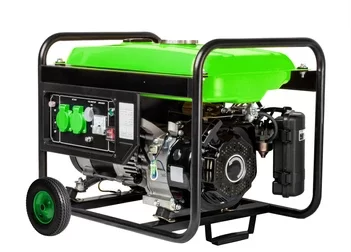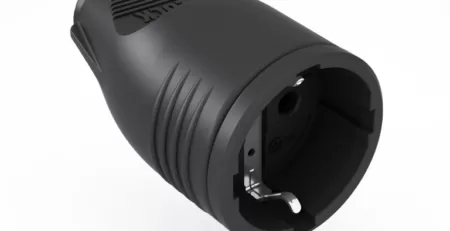Tips to Keep Your AC Generator Running Smoothly 2023
Tips to Keep Your AC Generator Running Smoothly 2023
AC generators are vital pieces of equipment that provide power in a variety of settings, from powering homes and businesses during power outages to providing energy in remote locations. Regular maintenance is essential to ensure that these generators continue to function properly and efficiently.
In this article, we will discuss the importance of AC generator maintenance and provide tips and tricks for keeping your generator running smoothly. We will cover topics such as regular inspections, cleaning and lubrication, and identifying and addressing common issues that can arise.
By following the guidance in this article, you can ensure that your AC generator is always ready to provide power when you need it most.
Regular Inspections

Regular inspections are a crucial part of maintaining your AC generator. These inspections allow you to identify and address any potential issues before they become major problems. By conducting regular inspections, you can ensure that your generator is running efficiently, safely, and reliably.
So, what should you be looking for during an inspection? Here are some key items to check:
Oil levels: Low oil levels can cause damage to the engine and lead to poor performance. Make sure to check the oil level and add oil as needed.
Air filter: A dirty air filter can restrict air flow and reduce the generator’s output. Make sure the air filter is clean and replace it if it is dirty.
Fuel levels: Make sure there is enough fuel in the tank to run the generator for the desired amount of time.
Coolant levels: Check the coolant level in the radiator and add coolant as needed.
Battery: Check the battery’s charge level and make sure the terminals are clean and securely connected.
Wiring: Check the wiring and make sure all connections are tight and clean.
Exhaust system: Check the exhaust system for any leaks or damage.
Alternator: Check the alternator for any signs of wear or damage.
It’s also important to be aware of common issues that can arise with AC generators, such as:
Overheating: This can be caused by low oil levels, a dirty air filter, or a malfunctioning cooling system.
Power loss: This can be caused by low fuel levels, a dirty air filter, or a malfunctioning alternator.
Voltage fluctuations: This can be caused by a malfunctioning voltage regulator or a problem with the generator’s wiring.
By conducting regular inspections and being aware of these common issues, you can take steps to keep your AC generator running smoothly. Be sure to consult the generator’s manual or consult with the manufacturer for specific inspection and troubleshooting procedures.
Cleaning and Lubrication

Cleaning and lubricating your AC generator are essential tasks for keeping it in good working order. A clean generator runs more efficiently, while regular lubrication helps to protect the moving parts of the generator from wear and tear.
To keep your generator clean, it’s important to remove any dirt, debris, or buildup that may have accumulated on the exterior of the generator. A mild cleaning solution and a soft brush can be used to gently clean the exterior of the generator. Be sure to avoid using high-pressure water or harsh chemicals, as these can cause damage to the generator’s components.
Regularly lubricating the moving parts of the generator is also an important part of maintenance. This helps to reduce friction and wear, which can prolong the life of the generator. Recommended lubricants for generator use include synthetic lubricants specifically designed for use in generators. You should consult the generator’s manual or consult with the manufacturer for specific recommendations on the type of lubricant to use.
When lubricating, be sure to lubricate all moving parts such as the bearings, gears, and any other parts that experience friction.
A general rule of thumb for lubrication is to lubricate the generator after every 50 hours of operation or at least once a month if the generator is not used frequently.
It’s also important to check the oil level and the oil filter. If you notice that the oil is dirty or has a burnt smell, it’s time to change the oil and oil filter. Be sure to consult the generator’s manual or consult with the manufacturer for specific recommendations on oil types and change intervals.
Common Issues and Solutions
Despite regular maintenance, AC generators can still experience issues from time to time. Understanding common issues that can arise and knowing how to troubleshoot them is an important part of keeping your generator running smoothly.
Some common issues that can arise with AC generators include:
Overheating: This can be caused by low oil levels, a dirty air filter, or a malfunctioning cooling system. To troubleshoot overheating, check the oil level, clean or replace the air filter, and make sure the cooling system is functioning properly.
Power loss: This can be caused by low fuel levels, a dirty air filter, or a malfunctioning alternator. To troubleshoot power loss, check the fuel level, clean or replace the air filter, and check the alternator for any signs of wear or damage.
Voltage fluctuations: This can be caused by a malfunctioning voltage regulator or a problem with the generator’s wiring. To troubleshoot voltage fluctuations, check the voltage regulator and the wiring for any loose or damaged connections.
Difficulty starting: Difficulty starting can be caused by a variety of issues such as low battery, dirty spark plug, clogged fuel filter, and others. To troubleshoot difficulty starting, check the battery level, clean or replace the spark plug, check the fuel filter and also check the fuel supply line.
Noise: Noise can be caused by a variety of issues such as loose parts, bearing wear, and others. To troubleshoot noise, check all moving parts, check for loose parts, and check the bearing wear.
It’s important to note that these are just a few examples of common issues that can arise with AC generators. For specific troubleshooting steps and solutions, be sure to consult the generator’s manual or consult with the manufacturer.
By understanding common issues that can arise with AC generators and knowing how to troubleshoot them, you can take steps to keep your generator running smoothly and ensure that it is always ready to provide power when you need it most.
Conclusion
Regular maintenance is essential for ensuring the longevity and reliability of your AC generator. By conducting regular inspections, cleaning and lubricating the generator, and troubleshooting common issues, you can ensure that your generator is always ready to provide power when you need it most. The key takeaways from this article include the importance of regular inspections, the proper way to clean and lubricate the generator, and tips for troubleshooting common issues.
It’s important to remember that regular maintenance is not a one-time task, it is an ongoing process that requires attention and care. By following the guidance in this article, you can ensure that your AC generator is always in good working order. If you have any questions or concerns about your generator, be sure to consult the manual or consult with the manufacturer. Don’t wait until it’s too late, start taking care of your generator today and ensure that it runs smoothly and efficiently.
The Benefits of a Silent Generator: How to Keep the Power On Without Disturbing Your Neighbors 2023
In today’s world, having a reliable power source is essential for both personal and professional use. However, traditional generators can often be loud and disruptive to the community. A silent generator offers a solution to this problem by providing power without disturbing neighbors.
In this article, we will explore the benefits of using a silent generator, including how it works, the advantages it provides, and how to choose the right one for your needs. We’ll also discuss the different types of silent generators available in the market and the recommendations for specific industries and applications.
So, let’s start by understanding the importance of having a reliable power source.
How silent generators work

Silent generators, as the name suggests, are generators that produce minimal noise while in operation. They are designed to provide power without disturbing the surrounding community, making them ideal for residential, commercial, and industrial use. The technology used in silent generators is based on soundproofing and vibration-damping methods that significantly reduce noise levels.
The most common method used to reduce noise in silent generators is through the use of soundproofing materials such as acoustic panels, sound-absorbing foam, and acoustic enclosures. These materials are strategically placed around the generator to reduce the transmission of sound. Additionally, silent generators also use vibration-damping methods, such as mounting the engine on rubber pads, to reduce the transmission of vibration and noise.
When compared to traditional generators, silent generators operate at significantly lower noise levels. Traditional generators can produce noise levels of up to 100 decibels, while silent generators typically produce noise levels of 60 decibels or lower. This makes silent generators suitable for use in residential areas, parks, and other noise-sensitive locations.
In summary, silent generators use advanced technology such as soundproofing and vibration-damping methods to reduce noise levels. They are significantly quieter than traditional generators and are suitable for use in noise-sensitive locations.
Advantages of using a silent generator

Silent generators offer several advantages over traditional generators, making them an increasingly popular choice for power generation.
The most obvious advantage of using a silent generator is its low noise level. This feature not only benefits the community by reducing noise pollution but also improves the overall quality of life for those living and working near the generator. It also allows the generator to be used in noise-sensitive locations such as residential areas, parks, and hospitals.
Silent generators are also designed to be more energy-efficient, which can lead to cost savings. They have fewer moving parts and use advanced technology, which reduces the need for frequent maintenance and repairs. Additionally, they typically have a longer lifespan, which can help to offset the initial cost of purchasing a silent generator.
Moreover, using a silent generator also minimize the risk of complaints and penalties. Traditional generators can cause complaints from neighbors due to their loud noise levels and can result in penalties from local authorities. Silent generators, on the other hand, can help to avoid these issues, making them a more responsible and socially conscious choice for power generation.
In summary, silent generators offer several advantages over traditional generators, including low noise levels, increased efficiency, and cost savings, and minimizing the risk of complaints and penalties. These benefits make them an ideal choice for power generation in a variety of settings.
Types of silent generators

There are several types of silent generators available in the market, each with its own unique features and advantages. Understanding the different types of silent generators can help you make an informed decision when choosing the right one for your needs.
- Portable silent generators: These generators are designed to be easily transported and can be used in a variety of settings. They are powered by gasoline, diesel, or propane and are typically used for camping, tailgating, and other outdoor activities. Portable silent generators are also ideal for use as backup power during power outages.
- Standby silent generators: Standby silent generators are designed to automatically turn on when there is a power outage and turn off when power is restored. They are typically powered by natural gas or propane and are suitable for use as backup power in homes, businesses, and other buildings.
- Hybrid silent generators: These generators are a combination of portable and standby generators. They are designed to be used as both portable and backup power. They can be powered by a combination of gasoline and propane, making them a versatile option for a variety of situations.
When choosing the right silent generator for your needs, it’s important to consider the different types and their suitability for different situations. The table below provides a comparison of the different types of silent generators and their suitability for different situations.
| Type of Silent Generator | Suitability |
| Portable | Camping, tailgating, outdoor activities, backup power during power outages |
| Standby | Backup power for homes, businesses, and other buildings |
| Hybrid | Versatile option for a variety of situations, portable and backup power |
In summary, there are several types of silent generators available in the market including portable, standby and hybrid generators. Each type of generator has its own unique features and advantages and it’s important to consider the different types and their suitability for different situations when choosing the right one for your needs.
Choosing the right silent generator
Choosing the right silent generator can be a daunting task, but by considering a few key factors, you can ensure that you select the best generator for your needs.
- Power output: One of the most important factors to consider when choosing a silent generator is the power output. The power output is measured in watts and determines how much power the generator can produce. It’s important to choose a generator with a power output that meets your needs.
- Fuel type: Another important factor to consider is the fuel type. Silent generators can be powered by gasoline, diesel, propane, or natural gas. Each fuel type has its own unique advantages and disadvantages, so it’s important to choose the fuel type that best meets your needs.
- Recommendations for specific industries and applications: Silent generators can be used in a variety of industries and applications, such as healthcare, manufacturing, and construction. It’s important to choose a generator that is suitable for your specific industry and application, and to consider the unique requirements of that industry or application.
- Proper maintenance and operation: Once you have chosen the right silent generator, it’s important to properly maintain and operate it to ensure it runs efficiently and safely. This includes performing regular maintenance and inspections, using the generator according to the manufacturer’s instructions, and properly storing the generator when not in use.
When choosing the right silent generator, it’s important to consider factors such as power output, fuel type, and recommendations for specific industries and applications. Additionally, it’s important to properly maintain and operate the generator to ensure it runs efficiently and safely. By considering these factors, you can ensure that you select the best generator for your needs.
Conclusion
silent generators provide a reliable power source without disturbing the surrounding community. They are designed to be low noise generators and offer several advantages over traditional generators, including low noise levels, increased efficiency, cost savings, and minimizing the risk of complaints and penalties.
There are various types of silent generators available in the market, each with its own unique features and advantages. It’s important to consider the different types and their suitability for different situations when choosing the right silent generator.
We hope this article has provided valuable information on the benefits of using a silent generator and how to choose the right one for your needs. If you are considering a silent generator as a power solution, we encourage you to explore the various options available and consult with a professional for further guidance. For more information, please refer to the additional resources provided.
FAQs
Q: How often should I conduct a regular inspection of my AC generator?
A: It is recommended to conduct a regular inspection of your AC generator at least once a month, or more frequently if it is used frequently or in harsh conditions.
Q: What type of lubricant is best for my AC generator?
A: It is recommended to use a high-quality, synthetic lubricant specifically designed for use in generators. Consult the generator’s manual or consult with the manufacturer for specific recommendations.
Q: My AC generator is not producing power. What should I do?
A: If your AC generator is not producing power, it could be caused by a variety of issues such as low oil levels, a dirty air filter, or a malfunctioning voltage regulator. Check the generator’s manual or consult with the manufacturer for specific troubleshooting steps.
Q: Can I clean my AC generator with a pressure washer?
A: It is not recommended to use a pressure washer to clean your AC generator as the high-pressure water can cause damage to the generator’s components. Instead, use a soft brush and a mild cleaning solution.
Q: How can I tell if my AC generator’s alternator is malfunctioning?
A: Signs of a malfunctioning alternator can include decreased output voltage, fluctuating voltage, and a burning smell. Consult the generator’s manual or consult with the manufacturer for specific troubleshooting steps.
electric fuse
We are pleased to have you visit our pages on social networking sites,
where we publish exclusive offers on our website.
Our Facebook page here .
Our Twitter account is here .













Leave a Reply
You must be logged in to post a comment.